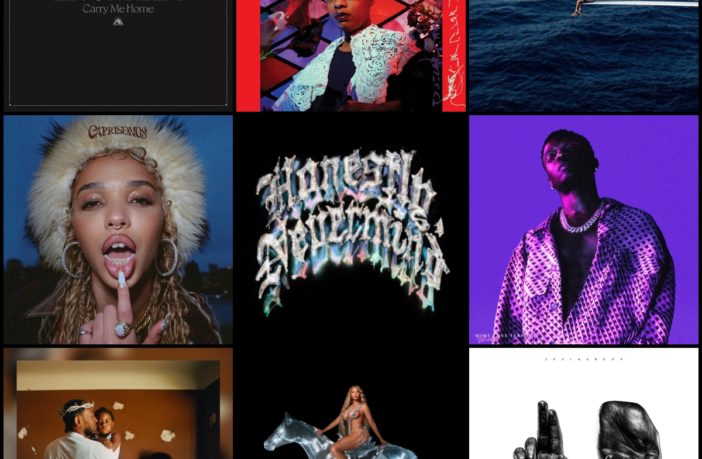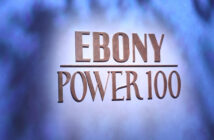The future is upon us in a sense that a cycle of music has been offered to the world by a plethora of gifted Black musicians. This year was a genre-diverse season along with a broad, refreshing age range of artists, all of which have produced impressive catalogs. From jazz, to Black metal to hip hop and avant-pop, 2022 did not disappoint.
These selections are a morsel of the wealth of great music released by Black artists this year. Nonetheless, these albums made waves, converted listeners to otherwise dismissed, underrepresented sub-genres, or were uniquely composed and well produced.
Cécile McLorin Salvant, “Ghost Song” (Nonesuch/Warner)
Cécile McLorin Salvant’s ethereal third album, “Ghost Song,” became a sonic favorite nominated for a Grammy (2023) for Best Jazz Vocal. But the nomination had nothing to do with the impact “Ghost Song” had on listeners. Her otherworldly, singular and poignant interpretation of standards along with original music that fused baroque, jazz and tones from the Renaissance gave the album a sound and feel that has never been heard. Salvant has the profound potential to be a jazz great like Carter, Lincoln and Vaughan.
Mavis Staples and Levon Helm, “Carry Me Home” (ANTI-)
The gospel music icon, Mavis Staples, now 82, enjoyed a long, storied friendship with musician Levon Helm since the 1970s. One of the pinnacles of their collaborative bond took place at Helm’s Woodstock dwelling in 2004 as a part of Helm’s curated music series, the Midnight Ramble concerts. The recordings that were captured during that performance have emerged nearly 20 years later, after Helm’s death in 2012.
For this reason, among others, this album is special. It is a historical time marker that encapsulates a moment in time that can’t be duplicated or resembled in any way. The recordings are crisp and Staples’ and Helm’s performance is classic and fluid. There’s great chemistry throughout and it exists as a touching ode to longtime friends.
SZA, “SOS” (Top Dawg/RCA)
SZA’s anticipated second studio album is one of the last releases of the year, closing out this somewhat strange, emotionally charged year with “SOS,” a somewhat morbid, dark humored, sonically creative music effort. SZA is different and fearless when it comes to blending Frank Ocean-esque soundscapes, but it should be noted that SZA wrote and composed every song on the album along with a number of innovative producers including Lizzo and Björk. So, it’s great to hear an album led by a woman whose voice is distinct and unvarnished, and untainted from the pressures to water pop and R&B down, making it digestible. This album is for sullen, gritty souls who need to release their complex emotions through music. SZA is needed during this touch-and-go, less than honest and sincere post modern era.
FKA Twigs, “Caprisongs” (Atlantic Records)
British singer-songwriter FKA Twigs continues her sonic exploration with her mixtape, “Caprisongs.” This new collection is more refined regarding the tightness and cohesiveness of the song’s beat structure. This album is less ambient and experimental and leans more towards a mainstream form, but does not completely remove Twigs’ signature layered vocals and tapering synthesized melodies and rhythms. The percussion is more syncopated and her songwriting also embodies more standard, hook-driven songs. The album is nice to listen to and is stimulating and inspiring.
Drake, “Honestly, Nevermind” (OVO, Republic Records)
Pop-music titan Drake emerges this year with a graceful, seamless collation of songs that can be considered his well-formed, thoughtful album. The album feels complete from start to finish as it flows melodically and swirls within the refreshing boundaries of distinctive dance music sub-genres of Baltimore and Jersey club, consequently giving homage and a global nod to Black music cultures that have gone mostly unnoticed and under-explored outside of their regions. The music is evenly tempered, and subtly sophisticated as producers Black Coffee and Gordo bring a calm to soundscapes that could easily become overbearing and repetitive. The lyrical basis is that of romantic grief, longing, and the calling in of togetherness and affection from distant paramores.
Beyoncé, “Renaissance” (Parkwood Records)
2022 brought a delightful surprise to Beyoncé’s bey-hive and American pop music lovers. “Renaissance,” the first solo full length body of work from Beyoncé since 2016, is a lively and energetic dance album with a track list that flows well and holds a streamlined lyrical style that bolsters self esteem, celebration and pop-style likeness that is satisfying and ambitious. This album is the first of a three album series that will unfold through the coming years.
Wizkid, “More Love, Less Ego” (Starboy/RCA)
The follow up to Nigerian Afro-pop artist’s acclaimed 2020 album “Made In Lagos, More Love,” “Less Ego” is a well-produced, intricate pop album. It does not stray too far from the foundational sound and style of Lagos, but denotes a forward motion that drives the sound—lightly nuanced African inspired synthesized beats and vocals leading the more above rhythmic ornamentations. Wizkid’s voice is an instrument in itself and doesn’t need much to create an R&B influenced song. This doesn’t diminish the creativity and impressiveness of the music, the album just leans more on Wizkid’s understanding and positive manipulation of rhythm.
Kendrick Lamar, “Mr. Morale & the Big Steppers” (pgLang)
It’s been five years since lyricist Kendrick Lamar received the Pulitzer Prize for his entrancing, cutting album “DAMN.” The artist’s latest work, “Mr. Morale & the Big Steppers” is an astounding, and much of the time, ultra-sensory musical experience that doubles as a hyper-realist confessional album. This record is not for the emotionally porous, meaning a listener whose empathy bleeds into any art or content they encounter may want to emotionally ground and prepare before listening. The album is deep, deep in a sense that it will touch wounds and experiences within you as you journey with Kendrick through the process of clearing deadwood, old vines and overgrown weeds that have been choking all of the living foliage within its reach. The album is a work of enlightenment, possibly genius, but the music is arduous as much as it is self-actualized.
Zeal & Ardor, “Zeal & Ardor” (MVKA)
The third studio album from Black metal band Zeal & Ardor is a dredging, inspired album that explores musical concepts influenced by classical music, particularly 19th century European composer Richard Wagner, and more obvious bands such as Deftones and Ministry, but this Black-led Swiss band came into prominence by exploring the Black slave trade and generational racism. This album, though less political, dwells in the murky, bleakness of aggression and philosophy. This album could become their seminal work, as it is bold, carefully mapped and intelligent.



